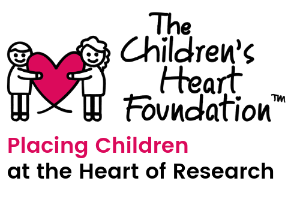Carlos has a big heart
By Marcos Otero
Carlos has a big heart. Carlos’s friends tell him, “He has a big heart.” This accolade has always made him feel good and humble. But – his doctor now too has told him he has a medically big heart! That medically big heart has made Carlos extremely sick.
Metaphorically, we all want a “Big Heart.” Webster dictionary defines “having a big heart” as being kind and generous. But anatomically or medically, we do NOT want a big heart! The medical term for a big heart is cardiomegaly, an abnormal enlargement of the heart.
Let’s talk about how Carlos presented to the clinic. Carlos is a 50-year-old obese hypertensive diabetic. Carlos does not always take his medications as prescribed and does not follow up as instructed. It has been over 14 months since he went for medical evaluation anywhere.
Carlos says that he has noticed his feet feel tight in his shoes over the last few months but feels better after taking his shoes off. He admits that his ankles are a little bigger than usual and states he has gained weight. A week ago, Carlos went to a birthday party and had foods with increased salt and drank beer. In the morning, he felt exhausted and had gained three pounds overnight. He felt extremely short of breath and had a cough. But what worries him is that he is having trouble sleeping because he cannot breathe well when he lies down and must now sleep in a recliner sitting up. He has no energy, and even going to the mailbox, he must stop to catch his breath, and his feet, ankles, and lower legs are very swollen.
The heart. Usually, the heart is the size of a person’s fist. And functions as a four-chambered pump circulating blood via the circulation system (arteries and veins). The heart pulls blood into its chambers from the body – ejects it into the lungs for oxygen – pulls it back in, then ejects the blood out with force back to the body out with oxygenated enriched blood. We all want a strong heart, and that is why we exercise.
Heart Failure. So, what is heart failure? Heart failure happens when the heart loses the ability to fill and pump blood effectively. As the heart becomes more ineffective, the heart’s chambers stretch to hold more blood body or by becoming stiff and thickened. This stretching helps keep the blood flowing. Over time the heart muscle walls may weaken and become unable to pump as efficiently, causing the heart size to enlarge and become even more ineffective as a pump. When the pump does not work, fluid remains in the lungs and the extremities. A person will have shortness of breath. The heart will die.
Causes of Heart Failure
The most common cause of congestive heart failure is coronary artery disease which is caused by high levels of cholesterol and triglyceride in the blood, high blood pressure, poor diet, a sedentary lifestyle, diabetes, smoking, obesity, and stress.
What Are the Symptoms of Heart Failure?
Early heart failure may not have any symptoms. But like Carlos, there can be congested lungs with shortness of breath and cough made worse with exercise, activity, or laying down.
As the heart pumps less effectively and the kidneys get less blood flow, you can retain water that will manifest as swollen ankles, legs, abdomen, and weight gain.
There can be loss of appetite and nausea. You can become dizzy and tired with weakness as less blood gets to the brain and major organs. Your heart rate can become rapid or irregular as the heart tries to compensate.
How Can I Prevent Heart Failure From Getting Worse?
- Keep your blood pressure low.
- Monitor your symptoms. Check for changes in your fluid status by weighing yourself daily and checking for swelling.
- Maintain fluid balance. Limiting your fluid intake to less than 2 liters per day will help.
- Limit how much salt (sodium) you eat.
- Monitor your weight and lose weight if needed.
- Medications improve the ability to pump so TAKE THEM AS PRESCRIBED!
- Schedule regular doctor appointments.
How Can I Prevent Further Heart Damage?
- Stop tobacco use.
- Reach and maintain your healthy weight.
- Control your blood pressure and cholesterol levels and keep your diabetes controlled.
- Exercise regularly.
- Don’t drink alcohol.



